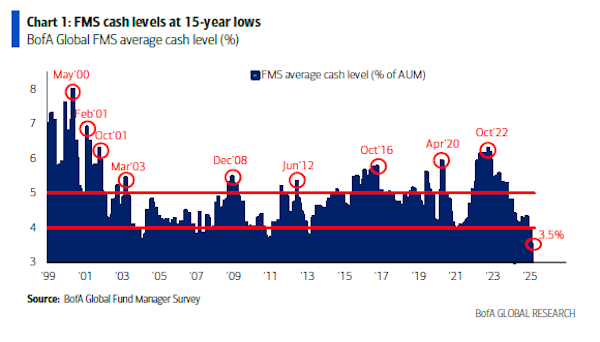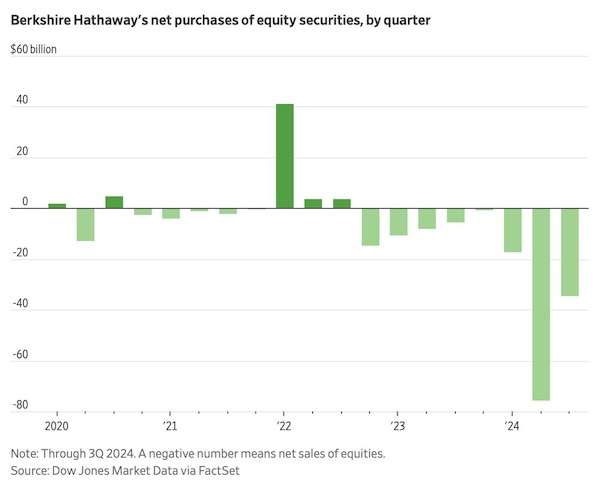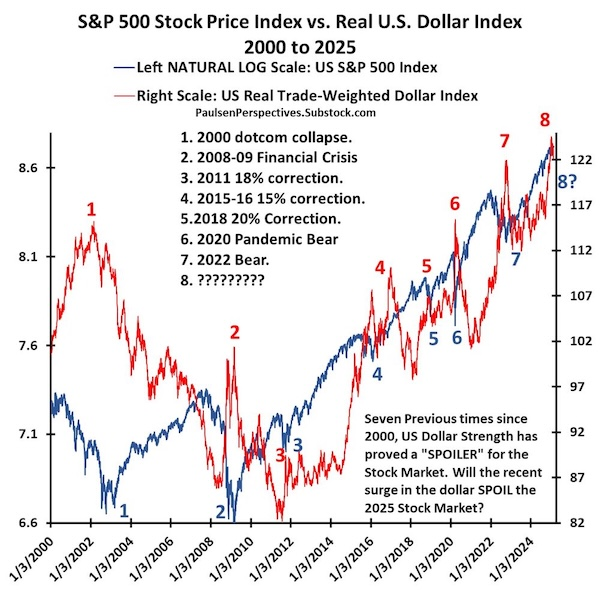“Half a trillion dollars have been invested in a misguided premise. Given the double whammy of price wars and unreliability, many AI companies will probably never make back their investments. Expect a major correction, possibly soon,” argues AI expert Gary Marcus.

If the AI capex boom is indeed another massive misallocation of capital, similar to what drove the Dotcom Bubble 25 years ago, then a “major correction” in spending could lead to something more significant for stock prices. And, much like it did back then, my friend Eric Cinnamond‘s Spidey-sense seems to be tingling again.

CHART
Meanwhile, institutional investors have rarely been so aggressively positioned for more upside as they are today. As Lisa Abramowicz reports, “Investors’ cash holdings are at 15-year lows in the latest Bank of America fund manager survey, which shows a huge overweight to US equities and the lowest levels of recession fears in 3 years.”

STAT
In stark contrast to this consensus, “Berkshire (NYSE:BRKb) was a net seller of equity securities in the past eight reported quarters, and a regulatory disclosure of its US stock positions in December suggests the selling extended to a ninth period,” reports the Wall Street Journal. As a result, Warren Buffett’s company has raised its cash holdings to the highest level as a percent of assets on record.
CHART
Certainly, extreme equity valuations help to explain this trend but it is also likely that Buffett understands, as Jim Paulsen points out, “The US dollar receives far less attention from equity investors than do other economic policies. But during each of the previous seven times when the dollar rose meaningfully, the stock market suffered significant declines.”

